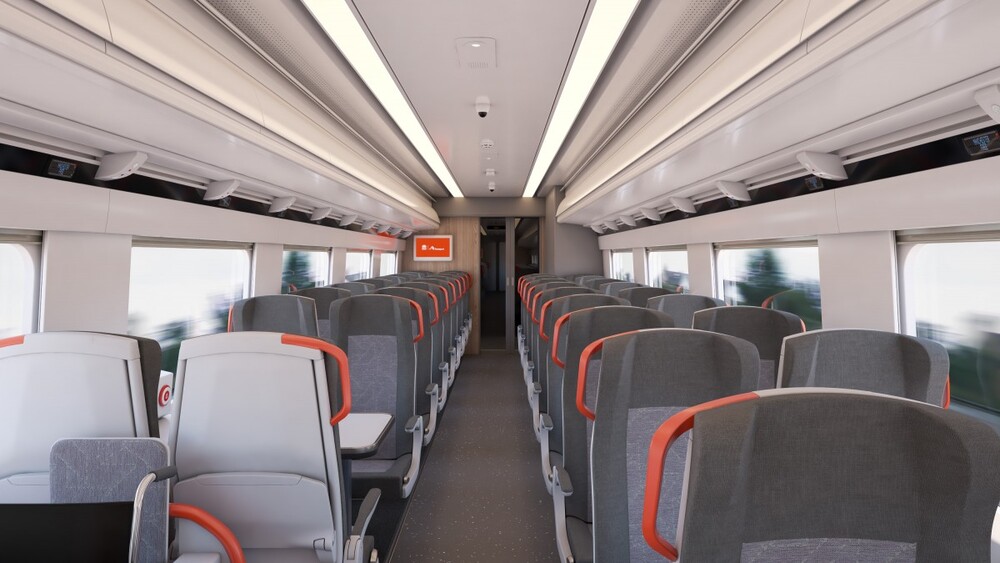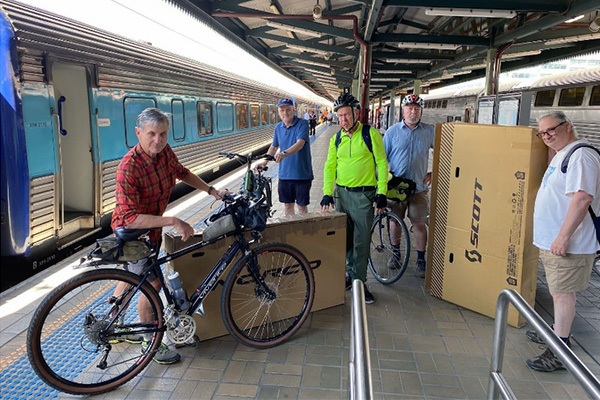Replacement for 40 year old XPT on its way...maybe
Laura Williams
24 January 2024, 2:40 AM
 The new trains will be a well earned retirement for the 40 year old XPTs that have services the regions. (Transport for NSW)
The new trains will be a well earned retirement for the 40 year old XPTs that have services the regions. (Transport for NSW)The first of the new fleet of NSW trains is expected to arrive in the first quarter of 2024, replacing the 40 year old XPT’s that Western Plains travellers use to access Sydney and NSW.
The fleet of 29 new trains - 10 of which are to replace the current XPT fleet - were first announced in 2017, and have blown beyond their expected delivery of early 2023.
While a timeline is unconfirmed for the arrival of the entire fleet, the first train is expected to arrive in Australia this year.
It comes as NSW TrainLink is seeing a peak in travellers choosing train services, with patronage from Sydney to Dubbo in 2023 being 30 per cent higher than 2022.
“People are recognising that it is a unique, cost-effective way to sit back and enjoy the ride, taking in the stunning scenery out the window, without the stress of driving or catching a plane,” Minister for Regional Transport Jenny Aitchison said.
The new regional rail fleet is expected to capitalise on demand for a more efficient way to travel, being the first trains in Australia to use bi-mode diesel-electric hybrid technology.

An artist's interpretation of the new trains' economy class. (Transport for NSW)
“Bi-mode will allow the fleet to run on overhead power when operating on the electrified train network to reduce carbon emissions,” Transport for NSW explains.
Other changes include WiFi onboard the train, as well as charging ports.
Peddling for more
Bike riders are hoping that a fleet changeover could see a change in rules for transporting bikes, which are currently under different requirements from intercity trains.
“Please stop penalising country & interstate train users who are the only ones in NSW who still have to disassemble & box up bikes and be under 20 kg, effectively banning e-bikes from getting on their trains,” Rail Trails for NSW requested on social media.
While the new regional intercity trains will have dedicated bike spaces, the short and long regional trains (XPT and Xplorer) have been ‘designed for bicycles to be stored in line with current NSW TrainLink procedures’.
Transport for NSW has assured that current procedures will be reviewed before the new fleet departs for the first trip.

Bicycle NSW has organised a petition to change the requirements for travelling with bikes on regional NSW trains. (Bicycle NSW)
“As part of this review process, concept testing is being carried out regarding the feasibility and viability of taking and storing bikes on-board without boxing,” Transport for NSW said.
Cyclists believe a change could be simple, and could provide huge opportunities for regional NSW if made easier.
"The rules for taking a bike on regional trains are a big impediment," Secretary of the Central West Cycle Trail Committee David Allworth said.
"Carriages can be easily and cheaply modified to adapt. Options include removing a row of seats from one of the cars to create space. Even during peak periods, there are abundant spare seats including unbooked wheelchair spaces."
Local Maintenance
The maintenance of the trains will take place at a newly constructed Dubbo facility, named ‘Mindyarra’, a Wiradjuri word meaning ‘to fix or repair’.
Major work at the Mindyarra Maintenance Centre has been completed, with the installation of key equipment, building fit-out and landscaping expected to complete the building by early this year.
The centre has been awarded by the Infrastructure Sustainability Council for its ‘leading’ design, which was built with carbon neutral concrete, will generate 95 per cent of its low voltage power needs, and use captured rainwater, bore water and recycled water where possible.
The entirety of the regional rail upgrade was budgeted at 2.8 billion, with little indication of when the new fleet will first leave the station.



